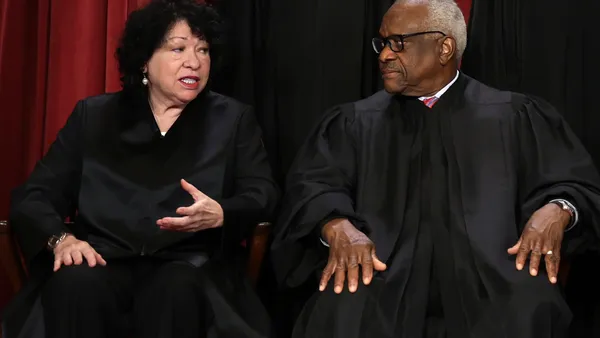Dive Brief:
- The #MeToo movement forced some employers to adjust their harassment policies, but training gaps in all risk areas remain, according to a new NAVEX Global report. According to survey responses from 1,200 global ethics and compliance professionals, 73% said they train their board members, up from 44% in 2017 and 58% in 2016.
- While the report showed an upward trend in professionals training directors on sexual harassment prevention, 28% of organizations are either not providing any workplace harassment training, or are only training employees once. Respondents also said they were not training directors in other risk areas, including code of conduct (25%), workplace harassment (44%), cyber security (25%), conflicts of interest (23%), and bribery and corruption (20%).
- Respondents in the survey identified their top training objective as "creating a culture of ethics and respect." NAVEX said this might indicate that organizations are looking at all risk areas, following the compliance failures that have surfaced in high-profile incidents and a growing understanding of culture's importance.
Dive Insight:
After last year's high-profile sexual harassment allegations surfaced, spawning the #MeToo movement, some observers expected that more workplaces would act quickly to step up or revise their harassment polices and training practices. But that hasn't necessarily been the case, according to a survey of U.S. employees in an American Physiological Association study.
Related to the issue of updating guidelines is the role of creating an ethical and respectful culture that can help keep organizations out of court but also make them more competitive in the battle for talent. Job seekers, after all, regularly review employers' online ratings and bypass those organizations with lower scores, according to past research. A report released late last year concluded that online ratings factored heavily in job searches, so employers should consider their online ratings an extension of their employer brand.
Having insufficiently communicated policies around harassment can increase organizations' liability. The U.S. Equal Employment Opportunity Commission (EEOC) has been vocal about the issue and has pushed for employers to update their training and ethics guidelines in response to what acting chair Victoria Lipnic has called a "cultural reckoning."












